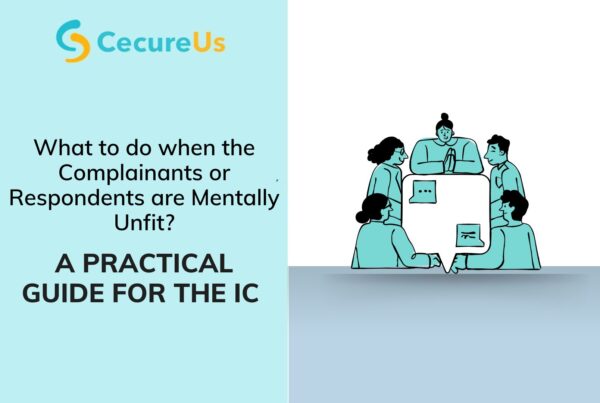
In civil and quasi-judicial proceedings, the burden of proof is notably different from that in criminal cases. Rather than requiring proof “beyond a reasonable doubt,” these cases operate on the preponderance of probability principle, where the most convincing evidence prevails, even if it does not entirely remove all doubt. This approach is particularly relevant in workplace sexual harassment cases, as it provides a fairer, more practical standard in often complex and sensitive situations.
Handling Sexual Harassment Allegations Without Direct Evidence: How Preponderance of Probability Works
Case Study: Riya’s Complaint Against Her Manager
Riya, an employee, files a complaint against her manager, Kiran, accusing him of making inappropriate remarks and fostering a hostile environment. Since the incidents occurred in private settings, there are no witnesses or physical records to corroborate Riya’s claims. Kiran denies the allegations.
Faced with limited evidence, the internal committee (IC) of the organization must rely on the preponderance of probability principle to evaluate the likelihood of each party’s account and arrive at a fair decision.
Applying Preponderance of Probability in PoSH Cases
The internal committee closely examines the behaviors, statements, and reliability of each party:
- Consistency and Detail in Testimony: Riya provides specific dates, settings, and remarks from multiple interactions with Kiran, which remain consistent across interviews.
- Performance and Past Conduct: Riya’s record prior to Kiran’s supervision shows no performance issues or similar complaints.
- Kiran’s Defense: Kiran’s response is solely a denial, with no substantive evidence to counter Riya’s account. Moreover, other employees have informally expressed concerns about Kiran’s behavior, though no formal complaints were filed.
Despite the absence of direct evidence, the committee finds Riya’s account more credible than Kiran’s defense and rules in her favor under the preponderance of probability standard.
When There Is No Evidence: Making Decisions on Credibility and Circumstantial Evidence
In cases like Riya’s, where no direct evidence exists, internal committees and courts turn to circumstantial evidence and the credibility of the parties involved. Here’s how they assess:
- Reliability of Testimonies: Consistency and coherence in the complainant’s statements strengthen the case, even without physical evidence.
- Conduct and Background: The behavior and history of both parties are weighed to assess the plausibility of the claims.
- Indirect Evidence: Any informal concerns or relevant details from other employees can lend support, even if they’re not formalized complaints.
In civil cases such as workplace harassment, decisions hinge on the probability of events rather than absolute certainty. Thus, even in the absence of physical evidence, if Riya’s account is deemed credible, her claim stands a strong chance of being upheld.
Conclusion
The preponderance of probability standard is essential in PoSH compliance and civil disputes where direct evidence may be lacking. It empowers internal committees to make decisions based on which side’s account is more probable, ensuring that justice is served in sensitive cases like sexual harassment. In India, legal precedents affirm that credible testimony from the complainant alone can suffice, preventing cases from being dismissed solely due to a lack of corroboration.
This principle underscores a balance between fairness and practicality, making it possible for justice to prevail even in challenging cases where evidence is scarce, and ensuring that workplace safety and respect are upheld.
Please reach out to us for any queries on Applying the Principle of Preponderance of Probability in PoSH Cases.
For more blogs and articles, visit our official website. Contact us for workshops and queries related to POSH, EAP (Employee Assistance Program) , Diversity and Inclusion and Code Of Conduct.




